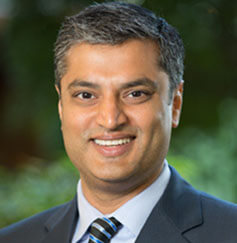
Big Data Advances Research, But It Shouldn’t Do So at the Cost of Privacy
University of Michigan Health Lab 2/24/20
And it might seem pretty safe to add an app that promises to help take control of your health through simple things like tracking your steps, measuring your blood pressure or noting your eating and exercise habits. But doctors who appreciate the research potential of incorporating big data into medical care are also warning about the need to manage the risk of exposing such health data while it’s still possible to do so.
That’s because the average patient probably has no idea about the complex rules around what happens to their sensitive health data when it is collected by apps. For instance, a 2019 study found 19 out of 24 health-related apps studied shared their users’ data. Patient privacy laws preclude providers from sharing information, but the commercially available apps used to collect it don’t necessarily have to follow HIPAA, the law that governs privacy about health information.
“Some health data shared with a physician in the context of a health-related interaction is protected, but in a different context that same data is not protected,” says Jessica Golbus, M.D., a cardiovascular medicine fellow at the Michigan Medicine Frankel Cardiovascular Center. “The way the U.S. addresses health data focuses on who is using the data, but not the data itself.”
This lack of protection could lead to people’s sensitive data becoming available to unscrupulous third parties with sales interests, or those making decisions about life or disability insurance or employment, she says.
“One of the biggest areas of growth in medicine involves big data studies that use mobile technologies like our smart phones. We are really excited about these studies changing the way we deliver care, and we know our patients are excited about them too. But these studies may lead to generation of large amounts of digital data, which may be used outside the research setting in ways we don’t foresee,” Golbus says.
She authored a new perspective to highlight these consequences, published in Circulation, with two members of the University of Michigan’s Institute for Healthcare Policy & Innovation: Brahmajee Nallamothu, M.D., MPH, also with the Frankel CVC, and W. Nicholson Price II, J.D., Ph.D., also with the U-M Law School.
Read the full article by clicking on the title link.

